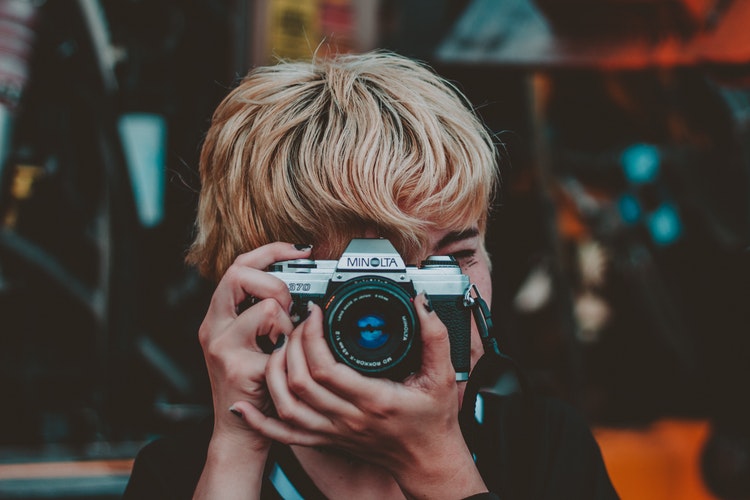Super excited to share the scoop on my spring 2019 writing and creativity classes at WOW! Whether you love prose, poetry, or photography (or all three, like me), there’s a little something and some big inspiration for everyone.
I’d love to have you join us! Course synopsis and direct links below.
I also just got a batch of my new writing books, In a Flash! and Poetry Power, that are all set to be signed and sent to fellow writers to spark the Muse. I have both individual copies and a special, sale book bundle of both texts that are jam-packed with prompts, examples, and literary goodness.
To a fabulous, creative spring ahead!
Photo courtesy of: @kylejglenn, unsplash.com
beginning Friday, March 15, 2019
I have just a few spaces left in this fun workshop. Reserve your spot today. :)
COURSE DESCRIPTION: Flash is a dynamic, fun genre that more and more editors seek. Both flash fiction and flash nonfiction share many of the same qualities, from characterization and setting to conflict and dialog.
In this five-week workshop, we’ll explore this eclectic art form and everything you’ll need to have a lively flash-writing practice, from where to get ideas and drafting to editing and submitting your work. We’ll discuss practical tips and techniques along with inspiring exercises from our text, In a Flash!: Writing & Publishing Dynamic Flash Prose, by Melanie Faith. Students will submit drafts weekly for constructive and supportive instructor feedback. There will be a private group for students to discuss the literary life and for sharing of literary resources, such as markets and quotations about the writing process.
Imagery Power: Photography for Writers (back by popular demand!),
beginning Friday, April 5, 2019
COURSE DESCRIPTION: “Fiction, like dreams, exists in images... Fiction must exist in images, not abstractions,” wrote John Dufresne. Indeed, the ability to develop imagery is important in all forms of writing, from poetry to essays and all sorts of descriptive writing. The art of photography, an evocative visual art, frequently helps authors hone our image-seeking and development skills. There won’t be technical jargon of F-stops or aperture priority in this course and you are free to use any form of camera you already own and love—from camera phone to digital, DSLR to Lomo, instamatic, you name it; this class is about cracking open the everyday extraordinary, about the kind of seeing and focusing on detail that will enhance your writing and spark ideas for months to come.
In this four-week workshop, we’ll take a daily photo-taking prompt for a spin, post our response, and describe what inspired each photo at our class group. During the second week, you will begin a piece based on one of the photos you’ve taken that you will share (in part as an excerpt or in full, up to you) with the class during our fourth week. Handouts on topics covered will include: Truthiness: Adding Layers to Your Art with Art; The Genesis and Development of Imagery: Example Sheet of Published Work; Submitting Your Work to Literary Magazines & Other Venues Looking for Photos: Cover Letter Tips; Photographic Resources to Check Out!; Tips for Writing about [Our] Art; How to Match Your Photographic Style to your Writing Style; Ekphrasis and You: Writing in Tandem with the Visual Arts; and Tips for Writing Fabulous Writer/Artist Bios. There will be a private group for students to discuss our creative process and share daily responses to each prompt and for sharing of literary resources, such as markets and quotations about the image-making process.
Poetry for Publication: An Insider’s View,
starting Friday, May 3, 2019
COURSE DESCRIPTION: Ever wonder how to go from scratching drafts in a notebook to sending poems to literary magazines that will get chosen for publication? Ever pondered what editors look for in literary journal submissions? How should we keep track of poetry submissions, and should we do that odd thing: “simultaneously submit?” Ever started a manuscript only to find it all a bit daunting to know what poems to include and which to omit? Want to prepare a chapbook or full-length collection but not sure where to start? How do we get past stalled drafts or stalled manuscripts to persevere and find our writing and reading community? If you've wondered any of these questions, then this is your workshop! Learn real-world, first-hand advice and tips from a poet who has judged poetry contests, published chapbooks and a full-length collection, and regularly submits poetry to literary magazines. Just because it’s chockfull of practical information, doesn’t mean it won’t be fun.
In this four-week workshop, we’ll explore what literary magazines look for in submissions, how the instructor as well as several other poets put together chapbooks and/or larger collections of poems, and insider advice for editing work with an eye towards publication. Students will read Ordering the Storm: How to Put Together a Book of Poems edited by Susan Grimm as well as excerpts from Poetry Power by Melanie Faith. There will be a private group for students to discuss the literary life, ask specific questions related to putting together a submission and/or manuscript, and for sharing of literary resources, such as markets and quotations about the poetry writing and submission process.
Topics covered will include: Best Foot Forward: Arranging a Poetry Manuscript; Journey without a Map; Finding, Unifying, and Revising the Body of Our Work; Throwing Poems at an Editor to See If They Stick; Keeping Company: Thoughts on Arranging Poems; Write Opportunity, Wrong Timing; Wild Cards: 8 Tips for Choosing Poems for Submission; The Art of Offering Feedback; The Plandid and Other Splendid Editing Options; Lavender Disappointment: on Adjustment of Expectation and Stalled Drafts; 76 Rabbits out of a Hat: or: The Quirky Tale of How One Poem became a Whole Book; 21-Century Publishing & Guidelines for Finding Your Ideal Audience; Spring out of a Writing Rut! 8 Tips for Getting back to Business, and more.
Photo courtesy of: @fotografierende, unsplash.com






